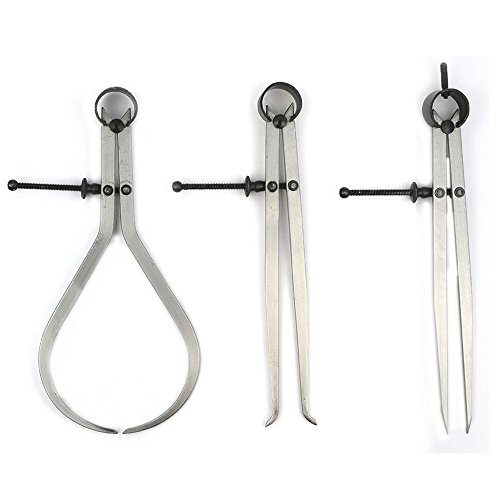Here is a website of a machinist of magic appliances. He sells some plans, including a "scotch and soda" coin set. Now that I look at it again, I'm not sure that set includes an expanded coin.
http://www.jamesriser.com/Magic/JamesRiserMagic.html
Entrpy, I think your last post is right on or very close. I had thought of expanding mandrels, but suggested a series of press fit mandrels that the coin would be struck onto with a plastic mallet. I was thinking that the metal would be easier to stretch by striking, but then again, ring stretchers work well with just pressure. Multiple annealings would ce important to prevent cracking, and to make the metal easlier to move, just as when making a coin ring. Once the coin has been stretched in diameter, it could be put onto a close fitting mandrel, and the sides could be stretched in height by striking with a plastic mallet.
If you can't find plans, spend a few afternoons in the shop experimenting. Nothing to lose but a few coins and a little time. When I did coins, I had a hard time learning how to anneal the coins without. Defacing them. It takes a deft touch with a torch.
Finally, on the legal issue, I am a lawyer, and have been for 40 years. When I read that statute, I take it to mean that the prosecutor would have to prove that you had an intent to defraud someone. Defrauding someone is more than just tricking them. You have to be tricking them into giving you money or some other advantage that they wouldn't otherwise have given. A magician performs illusions for entertainment. The audience pays for the entertainment, and thus gets what it intended to pay for.
http://www.jamesriser.com/Magic/JamesRiserMagic.html
Entrpy, I think your last post is right on or very close. I had thought of expanding mandrels, but suggested a series of press fit mandrels that the coin would be struck onto with a plastic mallet. I was thinking that the metal would be easier to stretch by striking, but then again, ring stretchers work well with just pressure. Multiple annealings would ce important to prevent cracking, and to make the metal easlier to move, just as when making a coin ring. Once the coin has been stretched in diameter, it could be put onto a close fitting mandrel, and the sides could be stretched in height by striking with a plastic mallet.
If you can't find plans, spend a few afternoons in the shop experimenting. Nothing to lose but a few coins and a little time. When I did coins, I had a hard time learning how to anneal the coins without. Defacing them. It takes a deft touch with a torch.
Finally, on the legal issue, I am a lawyer, and have been for 40 years. When I read that statute, I take it to mean that the prosecutor would have to prove that you had an intent to defraud someone. Defrauding someone is more than just tricking them. You have to be tricking them into giving you money or some other advantage that they wouldn't otherwise have given. A magician performs illusions for entertainment. The audience pays for the entertainment, and thus gets what it intended to pay for.























![DreamPlan Home Design and Landscaping Software Free for Windows [PC Download]](https://m.media-amazon.com/images/I/51kvZH2dVLL._SL500_.jpg)





























![MeshMagic 3D Free 3D Modeling Software [Download]](https://m.media-amazon.com/images/I/B1U+p8ewjGS._SL500_.png)





